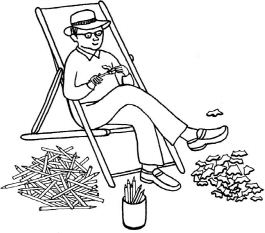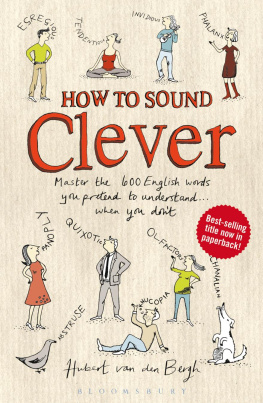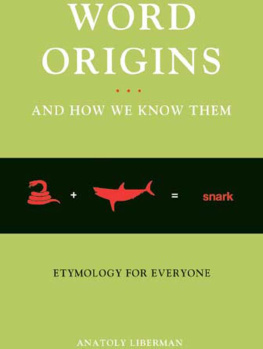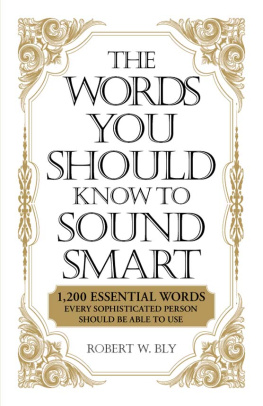
Copyright Hubert van den Bergh, 2010
Copyright illustrations Sandra Howgate, 2010
First published in Great Britain in 2010 by Bloomsbury Publishing Plc
50 Bedford Square, London WC1B 3DP
www.bloomsbury.com
This electronic edition published in 2013 by Bloomsbury Publishing Plc
Bloomsbury Publishing, London, New Delhi, New York and Sydney
The moral right of the author has been asserted
All rights reserved
You may not copy, distribute, transmit, reproduce or otherwise make available this publication (or any part of it) in any form, or by any means (including without limitation electronic, digital, optical, mechanical, photocopying, printing, recording or otherwise), without the prior written permission of the publisher. Any person who does any unauthorised act in relation to this publication may be liable to criminal prosecution and civil claims for damages.
A CIP record for this book is available from the British Library.
eISBN 978-1-40819-882-7
Visit www.bloomsbury.com to find out more about our authors and their books
You will find extracts, author interviews, author events and you can sign up for newsletters to be the first to hear about our latest releases and special offers
Contents
A couple of years ago, I was in a meeting trying to persuade some people of the merits of a business idea. The presentation seemed to be going well: the three people opposite me were nodding as I spoke. After ten minutes I stopped talking and put my pen down on the table in what I hoped was a business-deal-sealing kind of way. Then one of them spoke. You kept on using the word salubrious, he said. Do you know what the word actually means?
I should confess at this point that salubrious is one of those words Ive never been sure about. It sounds like the French word for dirty, which is sale, but I can never remember if it in fact means the opposite: if it means clean. I had to go for one or the other now.
Erdoesnt it mean dirty?, I said weakly.
He shook his head. Salubrious means the opposite it means clean.
The deal collapsed five minutes later.
Now, that particular gentleman may have been a stickler, but his point stands: if you cant be trusted with your use of those most elementary units of communication, words, then what can you be trusted with exactly?
That incident was the catalyst for this book. Over a two-year period, I looked up every word I didnt understand when I heard it in a conversation or read it in a newspaper. But is this book for you? Have a look at the three sentences below if you dont understand the words in bold, then youll get something of out this book. Be honest; dont dissimulate:
Manchester Uniteds shirt sales depend on the clubs continued hegemony
A phalanx of security guards monitors Obama
Journalists often describe stock markets as febrile
The three words highlighted above are part of a group that we all struggle with these are the words we find abstruse yet nod to during conversations; the words that we see in newspaper articles and hope their context will elucidate.
But the problem with leading our lives in this way is this:
If we need a words context to understand its meaning, it follows that we lack the confidence to use that word ourselves.
Which means that, after our halcyon schooldays are over, our vocabulary never improves.
This book contains 600 or so English words that were always meaning to look up. Each word summons up a concept that is idiosyncratic; and so each word increases your ability to express what is in your head. And the unintended corollary of your using language in this more precise way is that you will sound clever.
For each word, I list its root and then give an example of how to use it, such as:
perfunctory (adj.)
= (of an action)done carelessly, as a matter of routine from the Latin perfunctorius: careless
e.g.Breakfast at Tiffanys author Truman Capote hated writing, so postponed it by sharpening pencils for hours: he found this perfunctory action soothing

The place for this book is on top of your bedside table or toilet cistern. Once youve flicked through it as you nod off or focus on scatological matters, youll start to notice these 600 words everywhere. Its like buying a new car, a BMW, say; in the weeks afterwards, BMWs seem to fill the roads not because their number has proliferated but because you are more alert to their presence.
Soon you will be so comfortable with these 600 words that you can use them yourself. This will give you a kick because you are expressing yourself in as pellucid a fashion as possible; and the unintended consequence of this is that your sentences will become lapidary and, as it happens, you will sound clever. So, enjoy
This book is dedicated to my mother, with her gift for science; and for my father, with his gift for art.
abstruse (adj.)
= hard to understand from the Latin abstrudere: to conceal
e.g. When we can recall events from our dreams, they seem abstruse to us

actuate (verb)
= to put into motion from the medieval Latin actuare: to carry out
e.g. When you leave the house, you must tap in a pin code to actuate the alarm
acuity (noun)
= sharpness of mind or of the senses from the Latin acuere: to sharpen
e.g. The oratory of Barack Obamas speeches reflects his intellectual acuity
adage / aphorism (noun)
= a proverb expressing a universal truthadage derives from the Latin adagium: a saying (based on an early form of aio: I say); aphorism from the Greek aphorismos: a definition
e.g. One of Oscar Wildes best-known aphorisms / adages is: a little sincerity is a dangerous thing, and a great deal of it is absolutely fatal
adduce (verb)
= to cite by way of evidence from the Latin adducere, from ad-: toward, and ducere: to lead
e.g. Mark Twain passed on investing in Alexander Bells telephone, wrongly adducing that static on the line would mean no one would buy the device
adjunct (noun)
= a thing added to something else but as a non-core part from the Latin ad-: to, and jungere: to join
e.g. Women find that more attention from men is an adjunct to breast augmentation
adjutant (noun)
= a deputy from the Latin adjuvare: to assist
e.g. To show he was serious about his government being a coalition, Conservative David Cameron appointed Liberal Democrat Nick Clegg as his adjutant
aegis (noun)
= the protection of a particular bodyfor etymology, see box below
e.g. George Bush Snr was forced to punish Saddam for attacking Kuwait because Kuwait is under the aegis of the US
According to The Iliad (the Greek poem written by Homer in the 8th century BC), the aegis (or aigis in Greek) was the shield wielded by Zeus, the king of the gods. From the shield hung one hundred golden tassels, which were depicted by Classical vase-painters as writhing snakes.















